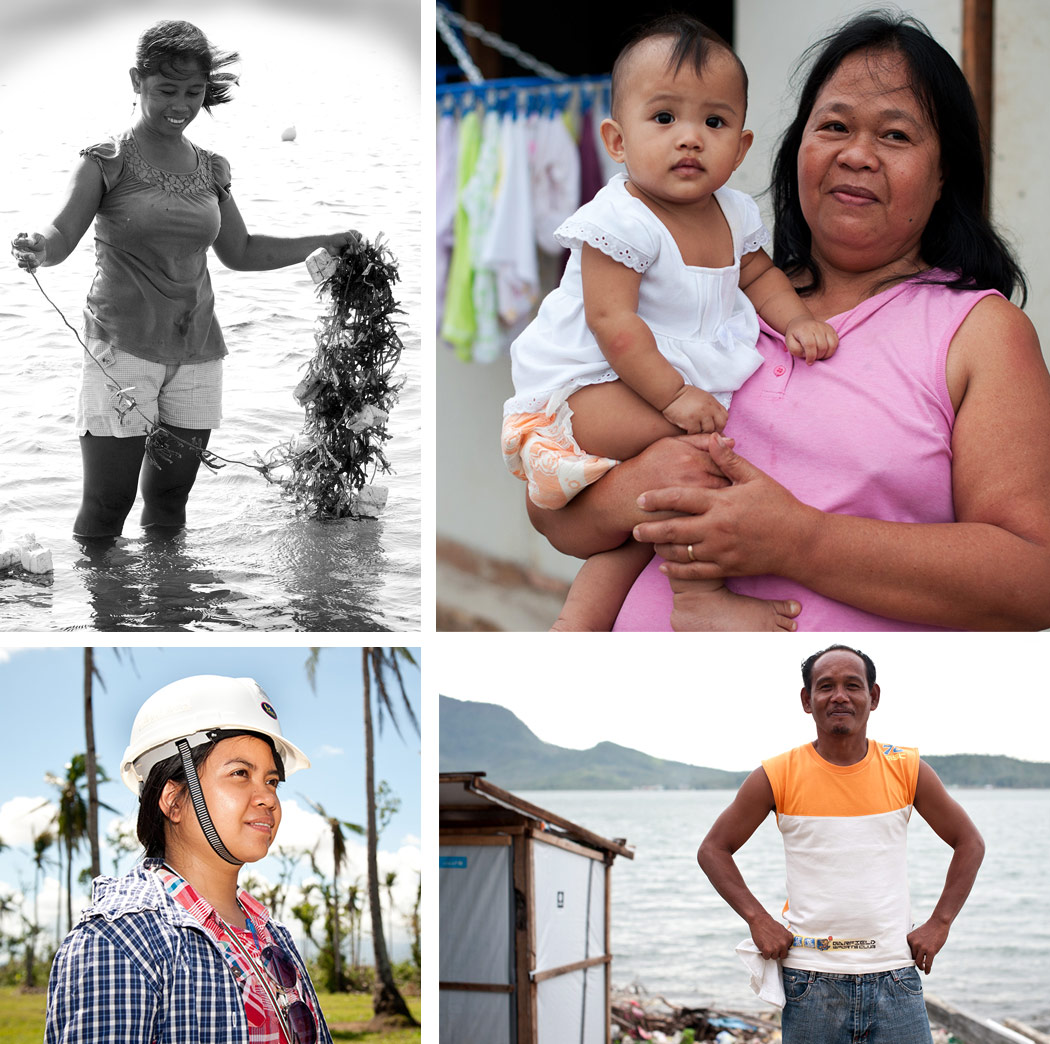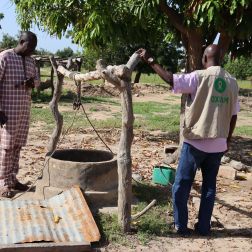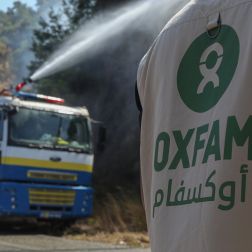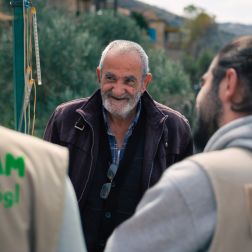- 6 mins read time
- Published: 7th November 2014
Your Impact: One Year On From Philippines Typhoon
Two ships sat wedged on the land. Underneath their hulks lay the remains of houses and the bodies of those who called them home.
All around lay flattened. On a piece of corrugated iron read the words ‘HELP ME’.
A teddy bear was face-down nearby and underfoot were the remants of everyday life as we know it; school books, shampoo bottles and plates among the debris.
I was in the Barangay 70 and 69 district in Tacloban city in the aftermath of Typhoon Haiyan. Earlier that day we saw bodies on the streets and drove past an evacuation centre which collapsed on top of those who had sought safety there, the steel structure twisted horribly by the storm.
More than 5,000 people were killed and 4 million were forced from their homes as Haiyan (or Yolanda as it’s known in the Philippines) wove its destructive path through the central Philippines. It was the strongest tropical cyclone on record to make landfall.
Grief was raw. We stopped at a church surrounded by newly dug plots. A photograph of a boy no older than three marked one resting place, surrounded by favourite sweets.
Back where the ships lay, we met a father who had lost his wife and three children. In an emotional encounter, he wept as he showed their pictures in the family photo album.
Amid the devastation, children played in the street and begged us to take their smiling pictures. Nearby, an Oxfam water bladder was providing clean and safe water. Opposite stood one of another Oxfam tap.
In spite of their overwhelming loss, people were trying to get back to some sort of sense of normality. Stalls were opening again on the side of the roads and the most popular items were torches, proving that demand dictates the market no matter what the circumstances.
Everywhere we went in the Philippines, people on spotting the Oxfam t-shirt would ask where we were from and express their gratitude for the support coming from the island of Ireland at this most difficult of times. Their resilience stunned us.
This was my first time in Asia and my first experience witnessing our humanitarian work in action. It was a real privilege to see how the generous donations of people across the island of Ireland translated into positive results on the ground.
From those who came into our shops with cheques written out to the appeal (the odd one written in four figures), to children who saved up their pocket money, along with bucket-shaking, events and even a charity single, we are incredibly grateful for your support. 100% of the funds raised went to our emergency response and had a positive and long-lasting impact.

Photos:
Top left: Seaweed farms like Marissa Gegante’s on Bantayan island were destroyed by the typhoon. She says: “We are thankful again for having Oxfam. They helped us to recover from the typhoon and to the donors of the livelihood programme and cash-for-work – and for the love we received from them. God bless Oxfam.” Tessa Bunney/Oxfam.
Top right: Enfracian Boca, pictured with her granddaughter Marcy Anne Fuentes (8 months), received an Oxfam hygiene kit containing essential items including soap, detergent, toothpaste, and underwear. She says: “Thank you to Oxfam for the hygiene kit. It has been very useful – we have used everything, especially the soap.” Eleanor Farmer/Oxfam.
Bottom left: Arlene Arceo, Manager of Latufa Farmers' Association, says: “We thank Oxfam for helping us to recover after the super typhoon Yolanda. You give us new hope for our livelihoods and a new job on our coconut lumber project.” Eleanor Farmer/Oxfam.
Bottom right: Kenneth Caneda stands in front of two Oxfam latrines in Tacloban. “I use these Oxfam toilets,” he says. “We have no other toilets here. Also thank you for the cash for work for clearing the paths here.” Eleanor Farmer/Oxfam.
Thanks to the generosity of our supporters, we were able to not only provide vital aid such as food, clean water, sanitation and shelter in the immediate aftermath but also be there for long-haul, helping people to rebuild their lives and livelihoods.
Typhoon Haiyan delivered a double blow. In the short term, it left more than 14.1 million people in need of immediate, life-saving assistance. But it also pushed millions of poor people further into poverty. Rice crops, coconut trees and fishing boats were wiped out, leaving people struggling to grow food and earn an income.
In response, we have reached more than 860,000 people so far. Our first priority was to provide life-saving assistance, such as clean water, toilets, hygiene kits, and cash to buy food and other essentials. We then began helping people to recover the livelihoods that had been destroyed by the disaster.
For example, we provided rice seeds for farmers to replant lost crops and chainsaws for clearing fallen trees that obstructed fields.
One year on from the disaster, the emergency phase of our response has finished. We’re now focusing on long-term recovery and rehabilitation. One way we’re doing this is by planning how water and sanitation facilities will be managed on a permanent basis. We’re also looking at how people will be able to earn a living.
We need to ensure that communities not only recover, but are more prepared for the next disaster.
The Philippines is the third most disaster-prone country in the world. In the face of predictions of more extreme weather, our new report Can’t Afford to Wait highlights the importance of being prepared for climate-related risks. It follows a warning last week from experts at the Intergovernmental Panel on Climate Change about the irreversible impact of climate change on people and eco systems. But there is a solution, if we urgently reduce carbon emissions.
Our Philippines campaign called #MakeTheRightMove calls on the Filipino government to get resettlement and rehabilitation efforts right, and immediately put in place their disaster preparedness and climate change adaptation plans.
As the world reflects on the events of November 8th, 2013, for those grieving nothing can ever replace their loss.
All we can do is continue to provide life-saving and life-changing support in times of crisis, and ensure people can face the future prepared, come what may.
Sorcha Nic Mhathúna is Oxfam Ireland’s Communications and Content Manager.




